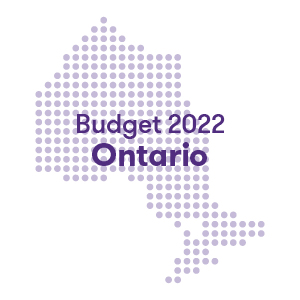-
Financial reporting and accounting advisory services
You trust your external auditor to deliver not only a high-quality, independent audit of your financial statements but to provide a range of support, including assessing material risks, evaluating internal controls and raising awareness around new and amended accounting standards.
-
Accounting Standards for Private Enterprises
Get the clear financial picture you need with the accounting standards team at Grant Thornton LLP. Our experts have extensive experience with private enterprises of all sizes in all industries, an in-depth knowledge of today’s accounting standards, and are directly involved in the standard-setting process.
-
International Financial Reporting Standards
Whether you are already using IFRS or considering a transition to this global framework, Grant Thornton LLP’s accounting standards team is here to help.
-
Accounting Standards for Not-for-Profit Organizations
From small, community organizations to large, national charities, you can count on Grant Thornton LLP’s accounting standards team for in-depth knowledge and trusted advice.
-
Public Sector Accounting Standards
Working for a public-sector organization comes with a unique set of requirements for accounting and financial reporting. Grant Thornton LLP’s accounting standards team has the practical, public-sector experience and in-depth knowledge you need.
-
Tax planning and compliance
Whether you are a private or public organization, your goal is to manage the critical aspects of tax compliance, and achieve the most effective results. At Grant Thornton, we focus on delivering relevant advice, and providing an integrated planning approach to help you fulfill compliance obligations.
-
Research and development and government incentives
Are you developing innovative processes or products, undertaking experimentation or solving technological problems? If so, you may qualify to claim SR&ED tax credits. This Canadian federal government initiative is designed to encourage and support innovation in Canada. Our R&D professionals are a highly-trained, diverse team of practitioners that are engineers, scientists and specialized accountants.
-
Indirect tax
Keeping track of changes and developments in GST/HST, Quebec sales tax and other provincial sales taxes across Canada, can be a full-time job. The consequences for failing to adequately manage your organization’s sales tax obligations can be significant - from assessments, to forgone recoveries and cash flow implications, to customer or reputational risk.
-
US corporate tax
The United States has a very complex and regulated tax environment, that may undergo significant changes. Cross-border tax issues could become even more challenging for Canadian businesses looking for growth and prosperity in the biggest economy in the world.
-
Cross-border personal tax
In an increasingly flexible world, moving across the border may be more viable for Canadians and Americans; however, relocating may also have complex tax implications.
-
International tax
While there is great opportunity for businesses looking to expand globally, organizations are under increasing tax scrutiny. Regardless of your company’s size and level of international involvement—whether you’re working abroad, investing, buying and selling, borrowing or manufacturing—doing business beyond Canada’s borders comes with its fair share of tax risks.
-
Transfer pricing
Transfer pricing is a complex area of corporate taxation that is concerned with the intra-group pricing of goods, services, intangibles, and financial instruments. Transfer pricing has become a critical governance issue for companies, tax authorities and policy makers, and represents a principal risk area for multinationals.
-
Succession & estate planning
Like many private business owners today, you’ve spent your career building and running your business successfully. Now you’re faced with deciding on a successor—a successor who may or may not want your direct involvement and share your vision.
-
Tax Reporting & Advisory
The financial and tax reporting obligations of public markets and global tax authorities take significant resources and investment to manage. This requires calculating global tax provision estimates under US GAAP, IFRS, and other frameworks, and reconciling this reporting with tax compliance obligations.

-
Transactions
Our transactions group takes a client-centric, integrated approach, focused on helping you make and implement the best financial strategies. We offer meaningful, actionable and holistic advice to allow you to create value, manage risks and seize opportunities. It’s what we do best: help great organizations like yours grow and thrive.
-
Restructuring
We bring a wide range of services to both individuals and businesses – including shareholders, executives, directors, lenders, creditors and other advisors who are dealing with a corporation experiencing financial challenges.
-
Forensics
Market-driven expertise in investigation, dispute resolution and digital forensics
-
Consulting
Running a business is challenging and you need advice you can rely on at anytime you need it. Our team dives deep into your issues, looking holistically at your organization to understand your people, processes, and systems needs at the root of your pain points. The intersection of these three things is critical to develop the solutions you need today.
-
Creditor updates
Updates for creditors, limited partners, investors and shareholders.

-
Governance, risk and compliance
Effective, risk management—including governance and regulatory compliance—can lead to tangible, long-term business improvements. And be a source of significant competitive advantage.
-
Internal audit
Organizations thrive when they are constantly innovating, improving or creating new services and products and envisioning new markets and growth opportunities.
-
Certification – SOX
The corporate governance landscape is challenging at the best of times for public companies and their subsidiaries in Canada, the United States and around the world.
-
Third party assurance
Naturally, clients and stakeholders want reassurance that there are appropriate controls and safeguards over the data and processes being used to service their business. It’s critical.
-
 ASPE Sec. 3041 Agriculture Understanding and applying the new ASPE Section 3041 AgricultureThe Canadian Accounting Standards Board (AcSB) has released new guidance on recognizing, measuring and disclosing biological assets and the harvested products of bio assets.
ASPE Sec. 3041 Agriculture Understanding and applying the new ASPE Section 3041 AgricultureThe Canadian Accounting Standards Board (AcSB) has released new guidance on recognizing, measuring and disclosing biological assets and the harvested products of bio assets. -
 Tax alert Agricultural Clean Technology ProgramThe Agricultural Clean Technology Program will provide financial assistance to farmers and agri-businesses to help them reduce greenhouse gas (GHG) emissions.
Tax alert Agricultural Clean Technology ProgramThe Agricultural Clean Technology Program will provide financial assistance to farmers and agri-businesses to help them reduce greenhouse gas (GHG) emissions. -
 Tax alert ACT Program – Research and Innovation Stream explainedThe ACT Research and Innovation Stream provides financial support to organizations engaged in pre-market innovation.
Tax alert ACT Program – Research and Innovation Stream explainedThe ACT Research and Innovation Stream provides financial support to organizations engaged in pre-market innovation. -
 Tax alert ACT Program – Adoption Stream explainedThe ACT Adoption Stream provides non-repayable funding to help farmers and agri-business with the purchase and installation of clean technologies.
Tax alert ACT Program – Adoption Stream explainedThe ACT Adoption Stream provides non-repayable funding to help farmers and agri-business with the purchase and installation of clean technologies.
-
Builders And Developers
Every real estate project starts with a vision. We help builders and developers solidify that vision, transform it into reality, and create value.
-
Rental Property Owners And Occupiers
In today’s economic climate, it’s more important than ever to have a strong advisory partner on your side.
-
Real Estate Service Providers
Your company plays a key role in the success of landlords, investors and owners, but who is doing the same for you?

-
Mining
There’s no business quite like mining. It’s volatile, risky and complex – but the potential pay-off is huge. You’re not afraid of a challenge: the key is finding the right balance between risk and reward. Whether you’re a junior prospector, a senior producer, or somewhere in between, we’ll work with you to explore, discover and extract value at every stage of the mining process.
-
Oil & gas
The oil and gas industry is facing many complex challenges, beyond the price of oil. These include environmental issues, access to markets, growing competition from alternative energy sources and international markets, and a rapidly changing regulatory landscape, to name but a few.

Updated: December 16, 2022
Bill C-32 received Royal Assent on December 15, 2022. The legislation in this bill, which includes highly anticipated measures from Budget 2022 aimed to help with housing affordability, specific non-tax measures from Fall Economic Statement 2022, and previously proposed legislation, are now enacted into law.
Furthermore, the Department of Finance released the following on November 3, 2022, related to measures that were not included in Bill C-32:
- Significant updates to draft legislation for the proposed excessive interest and financing expenses limitation (EIFEL) rules.
- An announcement that the proposed mandatory disclosure rules will be effective on the date Royal Assent is achieved (rather than January 1, 2023) for reportable and notifiable transactions in order to fully assess feedback received during the consultation period. The new reporting rules for uncertain tax treatments are still proposed to apply for taxation years beginning after 2022 (but penalties wouldn’t apply to taxation years that begin before the date Royal Assent is achieved).
- Newly introduced draft legislation for digital platform operators proposing to impose reporting and due diligence standards effective January 1, 2024, which follow the model developed by the Organization for Economic Co-operation and Development.
What are the key measures in Bill C-32?
New trust reporting rules are delayed another year
Most notably, the new trust reporting rules will now be in effect, as of December 31, 2023 and later tax years’. Under these rules, express trusts and certain non-resident trusts must report additional beneficial ownership information in a new schedule in the trust return.
The new rules apply to Bare trusts, meaning Bare trusts will need to start filing trust returns for December 31, 2023 and later taxation years or face significant penalties.
Expansion of the small business deduction (SBD)
The SBD provides Canadian controlled private corporations (CCPCs) with the benefit of a 9% tax rate applied to its first $500,000 of qualifying active business income—subject to the sharing of this small business limit with associated CCPCs.
The SBD is reduced when a CCPC’s aggregate taxable capital (including taxable capital of associated companies) for the prior taxation year exceeds $10 million and is fully eliminated under the new rules once the prior year’s aggregate taxable capital reaches $50 million (a significant increase from the previous $15 million upper limit). This welcome change, which is effective for taxation years beginning on or after April 7, 2022, will result in more CCPCs gaining access to the SBD, thereby lowering their taxes.
Housing affordability measures
Bill C-32 includes new legislation for the following measures aimed at increasing housing affordability:
- introduction of Tax-Free First Home Savings Accounts effective April 1, 2023
- doubling of the First-Time Homeowners Tax Credit starting in 2022
- introduction of the Multigenerational Home Renovation Tax Credit for 2023 and onwards
- introduction of the new residential property flipping rule that deem gains on certain sales of residential property to be business income if held under 12 months, for dispositions on or after January 1, 2023 Fall Economic Statement 2022 proposes to further extend these rules to gains on assignment sales where the rights to purchase the residential property was owned less than 12 months.)
Environmental measures
To promote clean energy, Bill C-32 includes new legislation for the following:
- phase-out of flow-through shares for oil, gas, and coal activities
- new 30% Critical Mineral Exploration Tax Credit for certain mineral exploration expenses incurred in Canada and renounced to flow-through share investors
- expanding classes 43.1 and 43.2 to include air-source heat pumps
Notable measures
Other notable measures in Bill C-32 that are now enacted include:
- elimination of interest on student and apprenticeship loans beginning April 1, 2023—previously interest had been temporarily waived for two years, ending on March 31, 2023
- expanding the Medical Expense Tax Credit to include certain medical expenses incurred in Canada relating to surrogate mothers and donors, fertility clinics and donor banks starting in 2022
- new graduated disbursement quota for charities for tax years beginning on or after January 1, 2023
- new rules and penalties targeting certain planning aimed at avoiding tax debts
- extension of the general anti-avoidance rules (GAAR) to transactions that affect tax attributes that have not yet been used to reduce taxes
- measures targeting certain interest coupon stripping arrangements
- measures impacting certain financial institutions and life insurers, including an additional 1.5% tax (subject to a $100 million taxable income exemption shared by a relate group) and the Canada Recovery Dividend which imposes a one-time 15% tax (subject to a $1 billion exemption shared by a related group) to be paid over five years
- changes to the federal excise duty frameworks for cannabis and vaping products
- administrative changes to the Underused Housing Tax Act and introduction of Regulations, including an exemption for certain vacation properties
Takeaway
If you need help navigating these tax measures or have any questions, our advisors are here to help you—reach out to us here.
Disclaimer
The information contained herein is general in nature and is based on proposals that are subject to change. It is not, and should not be construed as, accounting, legal, or tax advice, or an opinion provided by Grant Thornton LLP to the reader. This material may not be applicable to, or suitable for, specific circumstances or needs and may require consideration of other factors not described herein.
Get the latest information in your inbox.
Subscribe to receive relevant and timely information and event invitations.



